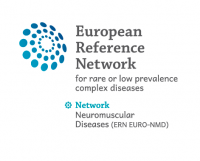|
Newsletter - September 2019 ͏ ͏ ͏ ͏ ͏ ͏ ͏ ͏ ͏ ͏ ͏ ͏ ͏ ͏ ͏ ͏ ͏ ͏ ͏ ͏ ͏ ͏ ͏ ͏ ͏ ͏ ͏ ͏ ͏ ͏ ͏ ͏ ͏ ͏ ͏ ͏ ͏ ͏ ͏ ͏ ͏ ͏ ͏ ͏ ͏ ͏ ͏ ͏ ͏ ͏ ͏ ͏ ͏ ͏ ͏ ͏ ͏ ͏ ͏ ͏ ͏ ͏ ͏ ͏ ͏ ͏ ͏ ͏ ͏ ͏ ͏ ͏ ͏ ͏ ͏ ͏ ͏ ͏ ͏ ͏ ͏ ͏ ͏ ͏ ͏ ͏ ͏ ͏ ͏ ͏ ͏ ͏ ͏ ͏ ͏ ͏ ͏ ͏ ͏ ͏ ͏ ͏ ͏ ͏ ͏ ͏ ͏ ͏ ͏ ͏ ͏ ͏ ͏ ͏ ͏ ͏ ͏ ͏ ͏ ͏ ͏ ͏ ͏ ͏ ͏ ͏ ͏ ͏ ͏ ͏ ͏ ͏ ͏ ͏ ͏ ͏ ͏ ͏ ͏ ͏ ͏ ͏ ͏ ͏ ͏ ͏ ͏ ͏ ͏ ͏ ͏ ͏ ͏ ͏ ͏ ͏ ͏ ͏ ͏ ͏ ͏ ͏ ͏ ͏ ͏ ͏ ͏ ͏ ͏ ͏ ͏ ͏ ͏
|
| |
Register Now for our Third Annual Meeting!
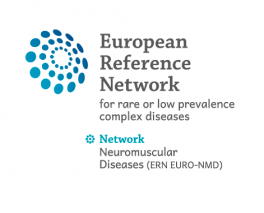
| |
Registration is now well underway for our 3rd annual meeting which will take place in Ferrara, Italy 6-8 November 2019.
Our meeting's draft agenda is now avaiable for download. This agenda may still be subject to change as we plan for the upcoming meeting.
Our annual meetings always provide an excellent opportunity for attendees to develop those all important network relationships and discuss their work with other network partners. With this in mind, attendance is highly encouraged.
Please note: one free ticket available for each of our HCP, member of Executive Committee, Working Group lead or Patient Advisory Board.
We look forward to seeing you in Ferrara!!
|
|
|
|
|
| |
European Commission Launches Call for Membership to Join the Existing European Reference Networks
| |
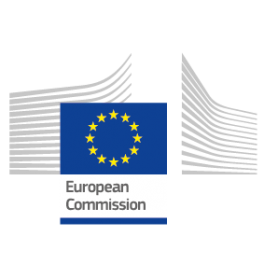
|
Today the European Commission launches the first call for new members to join the existing 24 ERNs.
Briefly outlined, the membership application process involves several steps:
- Review the information that is included on the Commission webpage related to the European Reference Networks and the applicable legislation
- Contact national representatives in the ERN Board of MS
- Fill in the application and self-assessment in the online tool
- Include all required documents that are specified in the online tool
Full details of the application process is available on the Commission's Website.
Closing date for applications is 30th November 2019.
|
|
|
|
|
| |
EURO-NMD Bursary Opportunities
| |
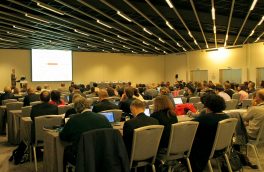
|
To ensure equity of care for patients with rare neuromuscular diseases across Europe, the ERN EURO-NMD is strongly committee to boost Training and Continuous Education Programmes. EURO-NMD is delighted to invite applications for the EURO-NMD bursary scheme, 2019; eligible persons are invited to apply for this program as soon as possible, (latest November 30th 2019). The bursary scheme is open to young researchers/doctors under the age of 40 years old that belong to one of the EURO-NMD healthcare providers. For 2019 we have put in place two grants of 500 € each to attend a scientific meeting in the neuromuscular field.
- You are affiliated to one of the 61 Healthcare Providers of the Network
- You are a young research/clinician working in the field of rare neuromuscular diseases
- You are under 40 years of age
- The scientific meeting you choose to attend must be in the field of neuromuscular diseases
- We will take in to consideration all applications, but candidates from European ITC countries will be favoured as well as those who would present a poster or deliver a presentation at the meeting they wish to attend
- You will have to send a short CV, as well as a letter explaining why you wish to attend the meeting
- Please apply using the form at the bottom of this page by November 30th 2019
- The assessment by the Executive committee of EURO-NMD will be finished by December 31st 2019, and you will be informed of the result of your application
- You will be invited to attend the Euro-NMD’s annual meeting in November 2020 where you will have to present an overview of the meeting you have attended
We are looking forward to reading your applications and wish all applicants good luck! |
|
|
|
|
| |
Voices of Patients
This month, two more members of the Patient Advisory Board answered our questions about their background, role and expectations of EURO-NMD. Read below to get to know them too!
|
|
|
|
| |
| |
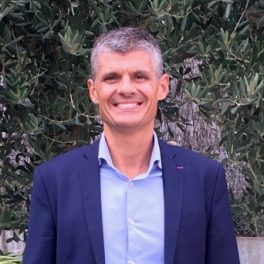
|
Jean-Philippe Plançon, Member of the Patient Advisory Board – French Association against Peripheral Neuropathies, European Patient Organisation for Dysimmune and Inflammatory Neuropathies
a. Tell us a little bit about yourself
“I am 50 years old and I have been suffering from a very rare peripheral neuropathy called Multifocal Acquired Demyelinating Sensory and Motor neuropathy (MADSAM or Lewis-Sumner syndrome) for 20 years. I have been involved in patient organisations both at national and international level for many years.
At the national level, I founded in 2006 the French Association against Peripheral Neuropathies (AFNP) and in 2016 the French Alliance of Rare peripheral neuropathies patients’ associations (Alliance-Neuro), a grouping of different associations involved in the field of rare peripheral neuropathies (acquired and genetic) created in the aim to work together on common issues and strengthen the voice of patients in this area.
At the International level, I am one of the founders and the chair of EPODIN (European Patient Organisation for Dysimmune and Inflammatory Neuropathies), recently created to strengthen the patient’s voice at the European level and to give each European citizen living with a rare immune-mediated peripheral neuropathy the opportunity to reduce the burden and inequalities due to the disease. Since 2012, I am also in liaison with the GBS-CIDP Foundation International, a US patient's support group.
My professional background is mainly related to health, education and health law.
I am married and I have a daughter aged 19. My wife and my daughter are two pillars in my associative commitment.”
b. What is your role in EURO-NMD?
“Elected to be a member of the European Patient Advocacy Group for the European Reference Network EURO-NMD in 2016, I am involved in several working groups such as the educational board that I co-chair with a clinician; the peripheral neuropathies sub-group in which I work closely with other national and European patient organisations; the ERN Working Group on Legal & Ethical issues & relations with Stakeholders, very important topics if we consider a long term vision for ERNs.
In a general way, I try to add the voice of patients as much as possible because I believe health care systems and healthcare professionals are first of all working for people affected by (rare) diseases. Each of us has got a role to play in improving health care.”
c. What are your expectations of the Network?
“I think ERNs can really help to improve diagnosis, treatment access and change patient’s lives in all Europe. Within EURO-NMD, since the beginning, patient representatives are involved in the functioning of the network (i.e. executive committee and each sub-group). It is very important because, we can really work with all stakeholders, share and add our perspective from patients. In the future, it will probably necessary to go further in the integration of patient expertise inside the structure of each ERN and I think rare diseases networks must become a full member of the whole scientific and medical community. For example, our ERN should be able to develop its own guidelines and recommendations in the neuromuscular domain. It means a new European regulation to give more financial self-governance and regulatory autonomy.
In my opinion, this is just the beginning of the story of ERNs and it’ll take a while to learn working together, but I am very proud to be part of this international process to improve quality of life of thousands of people in Europe.”
|
|
|
|
|
| |
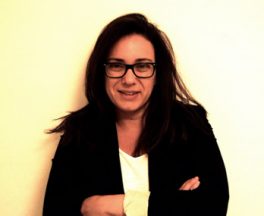
| |
Marisol Montolio, Member of the Patient Advisory Board, Duchenne Parent Project Spain
a. Tell us a little bit about yourself
“I’m Biologist and PhD in Neuroscience at the University of Barcelona. I’m the Scientific Director of Duchenne Parent Project Spain (DPPE), Curator of the Patient Registry in Spain and the Director of the Technological Department in DPPE, since 2015. Also, I’m an Adjunct Professor at the University of Barcelona. I coordinate this activity with an active collaboration with EURORDIS as a member of the European Patient Advocacy Group in the ERN (Patient Advisory Board, Research Board and member of the Muscle Diseases Specialist Group) and member of the Solve-RD. Also, I am in the management committee COST Action CA17103 (Delivery of antisense RNA Therapeutics) and I have been elected as a member of the External Scientific Board of the Hospital Sant Joan de Déu, Barcelona.”
b. What is your role in EURO-NMD?
“I give a voice to patients in research. In my point of view, in order to have translational research of the different rare diseases, we need to get all the stakeholders together and, in this point, the voice of the patient is important in all the steps. In the field of research in rare diseases, we have come a long way, but we haven’t made it even halfway far enough and the first step is the Patients Registries”
c. What are your expectations of the Network?
“EURO-NMD is the key to disseminate information with guidelines about care and treatments. But also, it is the way to end with the underdiagnosis in the rare diseases, and this Network generates the opportunity to have a bridge to Patients Registries compatibles. Another point is that, with this Network, we try to contribute to the definition of research priority areas based on patients and families point of view.”
|
|
|
|
|
| |
Registries Position Paper Issued by Patient Advisory Board
| |

|
EURO-NMD Patient Advisory Board (PAB) has published a position paper which describes patients' views on the design of the EURO-NMD registry, its governance, its funding. The paper, which is available to download, formalises patients' views on the topic ahead of the call for dedicated ERN registries. Patients’ data registries in Europe in the neuromuscular field followed the spectacular progress of medicine over the past decades. Due to the high number and heterogeneity of diseases, the variety of collected data types and the various national policies in the domain we observe today a multiplicity of initiatives drawing a highly uneven picture throughout the continent and among diseases.
|
|
|
|
|
| |
Publication - Nusinersen in type 1 spinal muscular atrophy: Twelve-month real-world data
The aim of the study was to report 12-month changes after treatment with nusinersen in a cohort of 85 type I spinal muscular atrophy patients of ages ranging from 2 months to 15 years and 11 months.
|
|
|
|
| |
Publication - MYO-MRI Diagnostic Protocols in Genetic Myopathies
Whole-body magnetic resonance imaging (WBMRI) has emerged as a useful imaging tool in diagnosing and characterizing the progression of myopathies and muscular dystrophies. WBMRI indications and diagnostic efficacy are becoming better defined with the increasing number of cases, publications and discussions within multidisciplinary working groups. Advanced WBMRI protocols are rapid, lower cost, and well-tolerated by patients. Accurate interpretation of muscle WBMRI requires a detailed knowledge of muscle anatomy and differential pattern of involvement in muscle diseases. With the surge in recently identified novel genetic myopathies, WBMRI will become increasingly useful for phenotypic validation of genetic variants of unknown significance.
|
|
|
|
| |
A Report from our Second Translational Summer School
| |
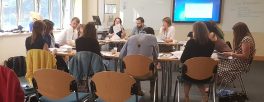
|
The second Neuromuscular Translational Summer School built on the success of the first, and took place in Leiden, The Netherlands on 1st – 5th July 2019.
The five-day course which was organised and delivered in association with TREAT-NMD included an overview of the following:
- Neuromuscular diseases and current care and management practices.
- Bench to bedside research.
- Challenges for rare disease therapy development and networking solutions.
- Tools of the trade for preclinical research. · An introduction to TACT (TREAT-NMD Advisory Committee for Therapeutics) and a TACT mock review session.
- Introduction to clinical trials.
- How the regulatory system works.
- The Industry perspective on drug development for rare diseases.
- Outcome measures used in clinical trials.
- TREAT-NMD tools for clinical trials.
- Biomarkers.
- PROM development.
- Post-marketing.
- Patient engagement.
We are in the process of developing our programme for the next summer school which will be held in 2020. Further information will be available in due course please regularly visit the website or monitor our twitter feed to ensure you keep up to date.
|
|
|
|
|
| |
IRDiRC’s State of Play of research report
| |
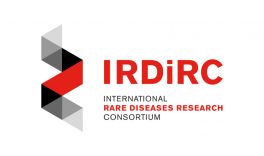
|
The International Rare Diseases Research Consortium (IRDiRC) has released the current state of play of research in the field of rare diseases.
The IRDiRC’s report “State of Play of Research in the Field of Rare Diseases: 2015-2018” is a compilation of information published in scientific journals and press releases over the period of September 2015 to June 2018.
The report aims to inform stakeholders at large of developments in the field of rare diseases and support decisions of policy makers and research funders, as well as to inform the rare diseases community of the achievements and observed trends which shape the future of research and development for rare diseases.
|
|
|
|
|
| |
First Newsletter for all ERNs is published
| |
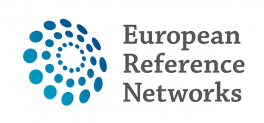
|
The first common newsletter to all ERNs has been published by DG Health and Food Safety.
There a while range of interesting pertinent articles ranging from an article by Matt Bolz-Johnson about the ERN GENTURIS patient journeys to an article about our upcoming webinar series.
|
|
|
|
|
| |
Join the Share4Rare Patient Ambassador Programme!
| |
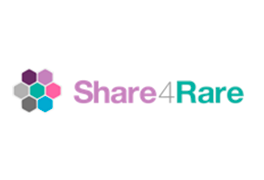
|
Share4Rare is building global community of patients and caregivers living with a rare disease. This secure, online platform provides a space to people to connect, and addresses the isolation associated with rare diseases.
The Share4Rare Ambassador Programme invites expert patients to join this exciting new community. Training and support will be provided to everyone who is recruited for the programme. Ambassadors will:
- Welcome new members and support them as they learn how the community works.
- Answer questions about living with a rare disease.
- Help members understand how to become involved in the research area of the platform.
- Suggest potential hypotheses for research questionnaires.
- Help members find information about managing their condition.
If you are a patient, or patient advocate who is interested in helping the Share4Rare community, please contact community@share4rare.org for more information by 30th November 2019.
|
|
|
|
|
